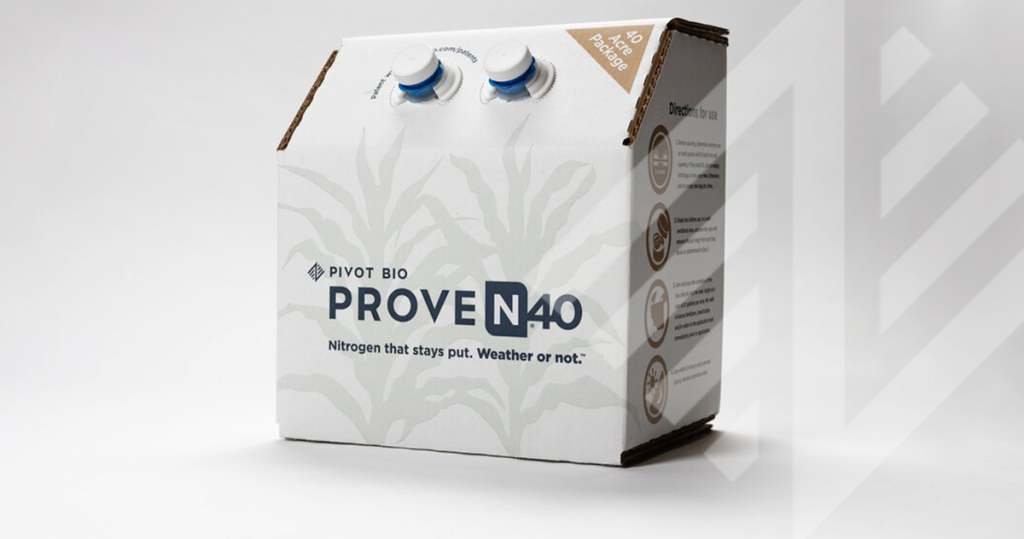Unlocking Crop Potential with Microbial Nitrogen

As farmers step into a new year, it’s a good time to assess and consider adjustments for the upcoming growing season.
A key component of a successful growing season is an effective and efficient fertilizer management plan. While fertilizer management plans include several essential nutrients, perhaps none are more important to plant health than nitrogen.
For the most part, nitrogen has always been affordable, with the ability to overapply without economic consequences. However, over the past several years, fertilizer prices have skyrocketed, due in part to short supply. Even with prices and supply stabilizing, when synthetic nitrogen is applied, most of it isn’t available when the corn plant really needs it.
Pivot Bio microbes make it possible for the nitrogen to be available when and where the corn plant needs it most, at the roots and throughout the growing season. These naturally-occurring microbes live and colonize on the plant’s roots to make nitrogen where it will be taken up by the plant.
As the microbes colonize the roots and the root mass increases, there’s more surface area for the microbes to grow on. As the roots grow, so does the amount of microbial nitrogen produced.
While Pivot Bio has conducted more than 46,000 plot trials internally, we are committed to working with multiple universities and other third-party research groups to independently prove the efficacy of our technology that allows them to reliably replace up to 40 pounds of synthetic nitrogen per acre while maintaining yield and improving environmental outcomes.
In 2022, Pivot Bio partnered with 15 universities, and in 2023, that number increased to 22, including the University of Georgia, North Carolina State University, Purdue University and Iowa State University. There were 40 different protocols, each with 60 to 80 plots for a total of 2,500 to 3,500 plots.
The University of Georgia study found that replacing 20 pounds of synthetic nitrogen fertilizer with Pivot Bio PROVEN® 40 resulted in greater yields and higher test weights — even with ideal conditions for nitrogen leaching due to the state’s deep sandy soils and high amount of annual rainfall as well as the amount of irrigation that’s applied to crops in the region.
The North Carolina State University study looked at the impact that PROVEN 40 has on nutrient uptake and yield in both dryland and organic soils. The dryland soils experienced drought conditions, and the corn treated with PROVEN 40 generally had greater biomass and uptake of nitrogen and potassium compared to the non-treated control. With the high organic soils, corn plants treated with PROVEN 40 had significantly greater yields than the non-treated, at about 8 to 12 bu/A.
The Purdue University study showed that between 2021 (a wet year) and 2022 (a dry year), PROVEN 40 increased corn yield by 6 bu/A and proved to be a nitrogen loss mitigation tool. Another 2021 study by Purdue indicated that corn yield response to PROVEN 40 was greatly influenced by potassium levels in the soil. In plots that ranged from 83 to 134 ppm soil test potassium, the yield response to PROVEN 40 was a 4.2 bu/A increase compared to a 13 bu/A increase to the non-treated check in plots with potassium levels that ranged from 134 to 408 ppm. Since nitrogen and potassium are taken up by the plant at a one-to-one ratio, fertility should be looked at holistically.
The Iowa State University study also measured nitrate leaching and was conducted using a new measurement method that allowed for a level of accuracy that would otherwise only be possible in a laboratory. To gather accurate data, 36 4-foot steel structures were created using four-sided metal boxes in the soil that did not disturb the soil structure. These self-contained soil blocks, called mesocosms, allowed the researchers to accurately measure nitrate leaching in the soil and nitrous oxide emissions. The results indicated that fewer nitrates were coming out of the bottom of the boxes when PROVEN 40 was used; more of the nitrates were moving up into the plant.
Pivot Bio is committed to research and partnerships that transparently measure the effectiveness and efficiency of its products. As farmers plan for the next season, Pivot Bio products can offer a more efficient approach to nitrogen management, ensuring reliable nitrogen delivery when the plant needs it most. For more information on these studies and others, visit Pivot Bio’s collection of independent performance data.


